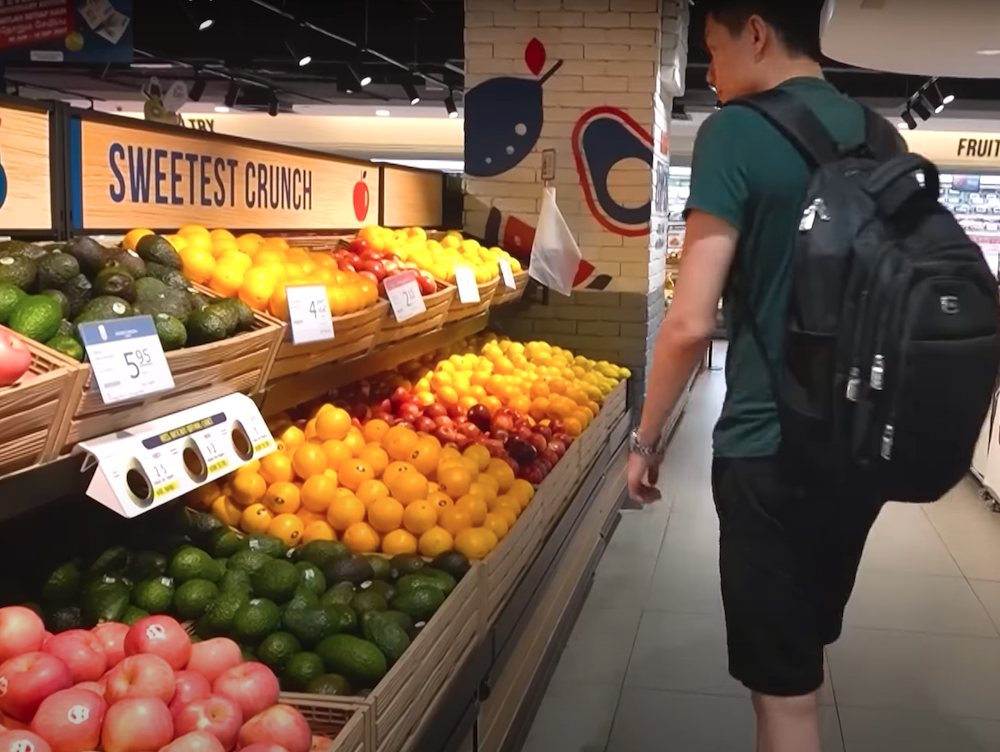'I don't know how people do this every day': Malaysian tries commuting to Singapore from JB for work for a day


 PUBLISHED ONSeptember 22, 2023 8:33 AMByMelissa Teo
PUBLISHED ONSeptember 22, 2023 8:33 AMByMelissa Teo In hopes of enjoying a better exchange rate, some Malaysians willingly travel to and from Johor Bahru (JB) and Singapore daily.
But is all the effort and painfully early mornings worth it?
Finance content creator Chun Weng wanted to find that out for himself.
In a YouTube video uploaded on Thursday (Sept 21), the Malaysian shared how he had tried to put himself in the shoes of someone who commutes between both countries for work.
While he did not manage to get a job in Singapore, he has the flexibility to work remotely because of what he does for a living, so he had some freedom to try this lifestyle out for a day.
To provide some context, he shared how once upon a time, in 1965, the Singapore dollar and Malaysia ringgit were actually one to one.
But fast forward to today, one Singapore dollar is equivalent to 3.4 ringgit.
"[This is] despite [both countries] having the same history, the same racial harmony, and also the same location," he pointed out.
Chun Weng also made a comparison between the average salary in Malaysia and in Singapore.
Chun Weng started his day at 4.19am after hitting his alarm's snooze button a few times.
"Extremely tired, but we have to start the day," he shared, adding that he felt like he had "no soul".
After brushing his teeth and getting ready, he took a 10-minute Grab ride to JB Central and reached around 5.50pm. The journey cost him just RM5.
All was going well until he saw the massive crowd trying to cross the border to Singapore.
By the time he had passed Immigration, it was 6.30am and he still had to wait and queue for a bus to Singapore.
It didn't help that it was extremely crowded.
"The bus [ride] cost $2. It was also super cramped," he recounted.
Worried about being late, he checked OneMotoring, a platform that tracks the traffic along the Causeway, and saw that it was "extremely bad".

Once he reached Kranji MRT in Singapore, he had "no time to spare" and quickly took a train to his "workplace" in Woodlands, which took 10 minutes and cost $1.
And at 7.45am, he settled down and started work.
When Chun Weng decided to have his lunch at 12pm, he went to check out the food and supermarket prices in Singapore.
The fatigue was also starting to hit him, which isn't surprising considering that he had been up since 4am.
For lunch, he ordered a plate of chicken rice for $3.50 and Hokkien mee for $4.
"If you really compare the prices, it's actually not that different when you compare it to living in Kuala Lumpur," he noticed.
"In fact, even though the pay in Singapore and Malaysia are around the same in each country's own currency, the buying power of the Singapore dollar is much, much higher, both in the country and outside the country."
To cite an example, he shared how someone working in Singapore would only need two weeks' salary to purchase an iPhone, while it would cost someone working in Malaysia one-and-a-half to two months of their salary.
Chun Weng also popped by a supermarket to see if there was a huge price difference in groceries.
Surprisingly, there wasn't.
"If you look at the prices, it's actually not too different," he noted.
For instance, an egg in Singapore costs 41 cents, while in Malaysia, it would cost RM0.67.
He even found out that Maggi noodles in Singapore is more affordable.
"Dollar to dollar, it's so much cheaper," said Chun Weng.

That's not all — he found Starbucks and McDonald's more pocket-friendly too.
Chun Weng also shared other assumptions about working in Singapore.
"The common belief is that if you work [in Singapore] and spend there, it's not much of a difference. That means, after you bring the money back to Malaysia, you won't make much anyway," he said.
"It's both right and wrong."
He believes that this is mainly because Singaporeans' largest expense is on housing or rental.
"It's actually 10 per cent higher as compared to the rest of the world," he said.
So, if you want to "get the best of both worlds", Chun Weng recommended staying in JB and working in Singapore because it'll mean cheaper housing with a higher salary.
At around 4.40pm, the exhaustion was beginning to kick in.
"I started feeling a bit tired some time around 3pm but now it feels like I'm about to crash," he admitted.
"Yeah, not feeling the best right now."
But he still had to make his way back to Malaysia.
"It's really taking a lot out of me. I really have to power through today simply because I still have to go to Woodlands, I still have to catch a bus back to JB, go through Customs. And then after Customs, I have to take another bus back home as well," he shared.
"It's not fun. It's quite an experience, and I don't know how some people are doing this every single day. So much respect for these guys."
When he finally got to go home, he rushed to the bus stop and began the arduous journey back.
The bus to Woodlands checkpoint took around 15 minutes and after scanning his passport, he took another 10-minute bus ride to get to the border, which he ran too.
And finally, he was back in Malaysia.
During his experiment, Chun Weng also met up with another Malaysian, Ash, who has been commuting to and from JB and Singapore every day for the past eight years for work.
Ash, who does customer service in the oil and gas industry, had happily agreed to help him mentally prepare himself for the experience.
During her interview with Chun Weng, she admitted that for her, it is "not really tiring" to wake up at 4am every day for work.
But she also revealed that some Malaysians like her only get three hours of sleep.
Ash also shared that the lack of sleep isn't the only issue — getting through Customs is another hurdle in itself.
"It's not only the traffic, you have to clear Customs, you need to go through the checkpoint, scan your passport. It takes up to two to three hours," she elaborated.
"Prepare yourself mentally and physically. Because you'll be really tired if you do this for the first time," she told Chun Weng.
Chun Weng also asked Ash if she would recommend staying in JB or Singapore if one wanted to work in Singapore.
"If you're more energetic, I think you can live in JB and work in Singapore. But if you're not, [I suggest you] just stay in Singapore and work in Singapore," she advised.
Ash also revealed that more Malaysians are heading to Singapore for work because of the better exchange rate.
"Compared to previous years, I think the conversion rate has gotten higher," she explained.
"Just by crossing the bridge every morning, I can get three times the pay for doing the same amount of work," Chun Weng added.
But while the money is seemingly better, a lot of sacrifices have to be made.
Ash told Chun Weng that she has given up health and time to make this work.
And with that time, she would have instead used it to exercise, sleep more and, of course, spend time with her family.
ALSO READ: Malaysian regrets coming to Singapore for work, cites toxic work environment
melissateo@asiaone.com